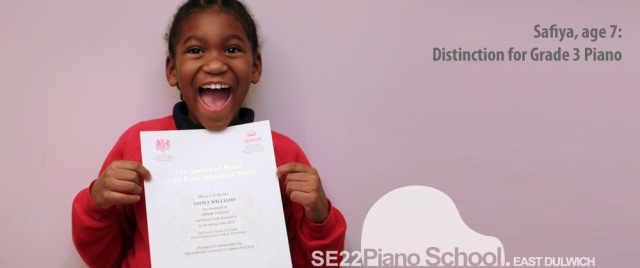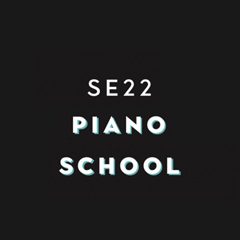Later today I will be publishing our ABRSM and Rockschool exam results from the July Summer session. In the meantime, here’s some interesting information taken from the ABRSM web site about the number of candidates entering for graded exams by instrument. You can see just how popular the piano is in the UK and also what grades candidates achieved at examinations. As a keen harpsichordist, it’s a shame that only 15 students entered exams in 2009. I’m hoping to boost those numbers by getting more pianists learning the harpsichord too! I organise harpsichord competitions for musicians of all ages and abilities as well as workshops at Handel House Museum and Peregrine’s Pianos.
1) Entries by instrument/subject.
Source: ABRSM page
| Instrument | Entries |
|---|---|
| Piano | 124,090 |
| Theory of Music | 45,275 |
| Violin | 35,587 |
| Flute | 28,832 |
| Singing | 27,657 |
| Clarinet | 23,022 |
| Alto Saxophone | 10,812 |
| Cello | 8,166 |
| Trumpet | 7,821 |
| Guitar | 5,035 |
| B Flat Cornet | 3,401 |
| Descant Recorder | 2,897 |
| Oboe | 2,768 |
| Trombone | 2,459 |
| Viola | 2,072 |
| Jazz Piano | 1,803 |
| Horn | 1,393 |
| Harp | 1,392 |
| Jazz Alto Sax | 1,209 |
| Bassoon | 1,077 |
| Double Bass | 1,033 |
| E Flat Horn | 960 |
| Euphonium | 651 |
| Treble Recorder | 574 |
| Tenor Saxophone | 509 |
| Organ | 490 |
| Percussion | 479 |
| Baritone | 402 |
| Tuba | 379 |
| Practical Musicianship | 290 |
| Jazz Clarinet | 268 |
| Soprano Saxophone | 257 |
| Jazz Trumpet | 212 |
| Jazz Flute | 172 |
| Jazz Tenor Saxophone | 119 |
| Jazz Trombone | 53 |
| Bass Trombone | 22 |
| Jazz Cornet | 22 |
| Jazz Soprano Sax | 16 |
| Baritone Saxophone | 15 |
| Harpsichord | 15 |
| E Flat Soprano Cornet | 7 |
| Jazz Baritone Sax | 3 |
| Jazz Flugelhorn | 2 |
2) Practical exam statistics
Source: ABRSM Page
| Grade | Pass | Merit | Distinction | Fail | Total |
|---|---|---|---|---|---|
| 1 | 29,833 | 29,822 | 14,982 | 1,253 | 75,890 |
| 2 | 25,893 | 19,269 | 7,370 | 1,646 | 54,178 |
| 3 | 22,506 | 16,262 | 6,016 | 1,714 | 46,498 |
| 4 | 16,337 | 10,819 | 4,119 | 1,610 | 32,885 |
| 5 | 15,116 | 9,318 | 3,772 | 1,953 | 30,159 |
| 6 | 6,044 | 4,258 | 1,948 | 855 | 13,105 |
| 7 | 4,053 | 3,033 | 1,782 | 701 | 9,569 |
| 8 | 3,307 | 2,851 | 2,542 | 858 | 9,558 |
| 271,842 |
3) Theory Exam statistics
Source: ABRSM Page
| Grade | Pass | Merit | Distinction | Fail | Total |
|---|---|---|---|---|---|
| 1 | 1,004 | 1,886 | 4,312 | 385 | 7,587 |
| 2 | 615 | 1,414 | 2,881 | 183 | 5,093 |
| 3 | 1,212 | 1,662 | 1,409 | 533 | 4,816 |
| 4 | 773 | 915 | 636 | 339 | 2,663 |
| 5 | 7,709 | 7,528 | 3,695 | 3,094 | 22,026 |
| 6 | 433 | 136 | 27 | 246 | 842 |
| 7 | 121 | 74 | 16 | 21 | 232 |
| 8 | 143 | 88 | 12 | 96 | 339 |
| 43,598 |
I believe that the average age for a candidate taking Grade 1 piano is 10. I cannot find the exact reference for this, although there is mention of this in an old copy of ‘Libretto‘, a magazine published by the ABRSM. This also states that the ‘typical Grade 5 practical candidate is 14 years old’.
ABRSM’s graded music exams for individual instruments, singing and Theory as well as diplomas and Music Medals are accredited by the regulatory authorities in England, Wales and Northern Ireland and are part of the National Qualifications Framework. In Australia, Canada and South Africa, ABRSM exams can be used for credit towards the relevant qualifications taken by students completing compulsory secondary education. The Universities and Colleges Admissions Service (UCAS) includes Grades 6–8 in the tariff for UK university and college entrance.



